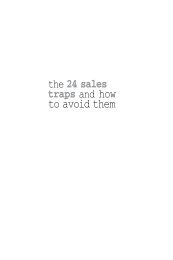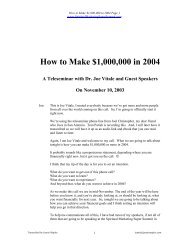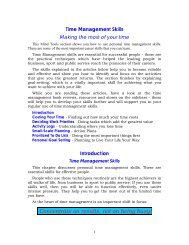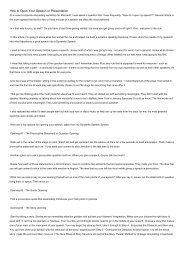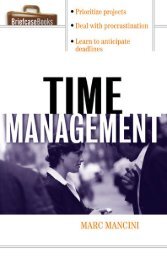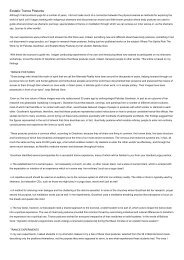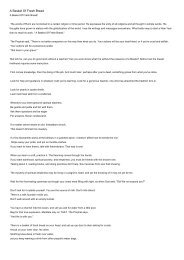Executive Coaching - A Guide For The HR Professional.pdf
Executive Coaching - A Guide For The HR Professional.pdf
Executive Coaching - A Guide For The HR Professional.pdf
You also want an ePaper? Increase the reach of your titles
YUMPU automatically turns print PDFs into web optimized ePapers that Google loves.
84 EXECUTIVE COACHING<br />
............................<br />
What is the client’s responsibility to them? What should the nature<br />
and frequency of the feedback to them be? Who should do it?<br />
<strong>The</strong> answer to these questions varies depending on the client’s<br />
level in the organization and on the client’s relationships with you<br />
and the boss. <strong>The</strong>re are no solid rules about this, but there are some<br />
good rules of thumb.<br />
<strong>The</strong> organization has a vested interest in hearing the client’s<br />
progress directly from the client. At the very least the client<br />
will want to give periodic updates to you and to the boss on how<br />
the coaching is proceeding. You and the boss will want to know<br />
if the relationship is working well, if each of you should be doing<br />
something to help it along, and if your observations could be helpful.<br />
It would be a good idea for the client to obtain a sense of your<br />
expectations concerning how often and in what modality you and<br />
the boss would like to be updated (voice, face-to-face, or email). If<br />
things aren’t going well, then of course the client should speak up.<br />
It is generally better for the client to keep the boss and the <strong>HR</strong><br />
person up-to-date, rather than having the coach do it all. <strong>The</strong><br />
coach’s opinions are valued, of course, but what you really want to<br />
see is progress and growth in the client! In any case, it is best if the<br />
coach does not do all that work alone.<br />
<strong>The</strong>re may also be some differences in the extent to which clients<br />
communicate their progress to you, depending on their level in the<br />
organization. Clients at more senior levels are less likely to keep<br />
you and their boss up-to-date. <strong>The</strong>y also may request that the coach<br />
keep conversations with others to a minimum. Although this may be<br />
more comfortable for the senior-level client, it doesn’t necessarily serve<br />
the client’s best interests. Clients at middle or first-level manager levels<br />
typically have less ability to operate with this kind of independence.<br />
Coachable Moments<br />
Some of the most valuable learning experiences come from “coachable<br />
moments.” <strong>The</strong>se are the occasions when the client recognizes<br />
that something important is happening that has to do with the focus





